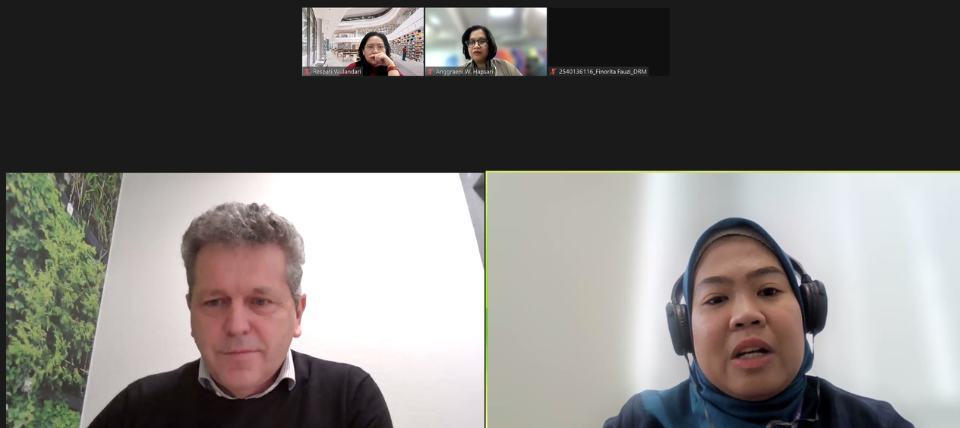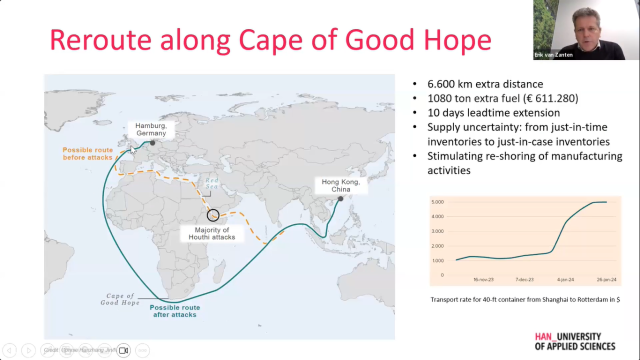The Pivotal Role of Supply Chain Management: A European Perspective

Jakarta, 25 March 2024— Europe has long been a nexus of global trade and laid the groundwork for its modern supply chains. In the latest international lecture webinar hosted by BINUS Business School (BBS), students gained insight into supply chain management from a European perspective.
Dr. Respati Wulandari, S.H., M.M., the Head of the Internationalization and Partnership Program at the BINUS Business School’s (BBS) Undergraduate Program, spearheaded the webinar “An Overview of Supply Chain Management from a European Perspective” alongside her team that help to emphasize the pivotal role of supply chain management (SCM) that stands at the intersection of tradition and innovation, weaving together centuries-old trade routes with cutting-edge technologies.
With an audience exceeding 350 students from the BBS’s eight undergraduate programs and our partner, HAN University of Applied Science, the webinar commenced with the bilateral trade ties between Indonesia and the Netherlands together with Mr. Erik van Zanten, MSc., EMLog., an esteemed expert in logistics and supply chain and a senior lecturer in supply chain management at HAN University of Applied Science.
A focal point of discussion delivered by Mr. Erik was the trade routes connecting Europe and Asia, with particular emphasis on China, given that most global trade and logistics are concentrated in Asia. However, the issue of piracy in the Red Sea disrupts shipping routes between these regions. To address this challenge, global traders opt for the Southern route, bypassing the Red Sea by navigating through the Cape of Good Hope, located on the Atlantic coast of South Africa.
Analysis of the trends over the past five years revealed that Indonesia achieved a trade surplus, primarily due to the Netherlands importing a higher volume of goods from Indonesia. The top commodities between the two countries encompassed fashion, food, home furniture and accessories.

Mr. Erik pointed out that “taking the Southern route poses more challenges for European global trade flow and logistics. This includes an increase of 1080 tons in fuel consumption, a 10-day extension in lead time, higher shipping costs, and heightened uncertainty in the supply chain.” Notwithstanding these obstacles, European supply chains are undergoing significant transformations to meet the demands of an increasingly interconnected and dynamic global economy.
Lastly, the enthusiastic dialogue between Mr. Erik and the students centred on adopting advanced logistics technologies aimed at streamlining routing, shortening transit time, and promoting eco-friendly modes of transportation. European companies can lay the groundwork for achieving supply chain excellence and securing a long-term competitive advantage through these initiatives.
For further information on this activity, please email Dr. Respati Wulandari, S.H., M.M., at respati.wulandari@binus.edu.

